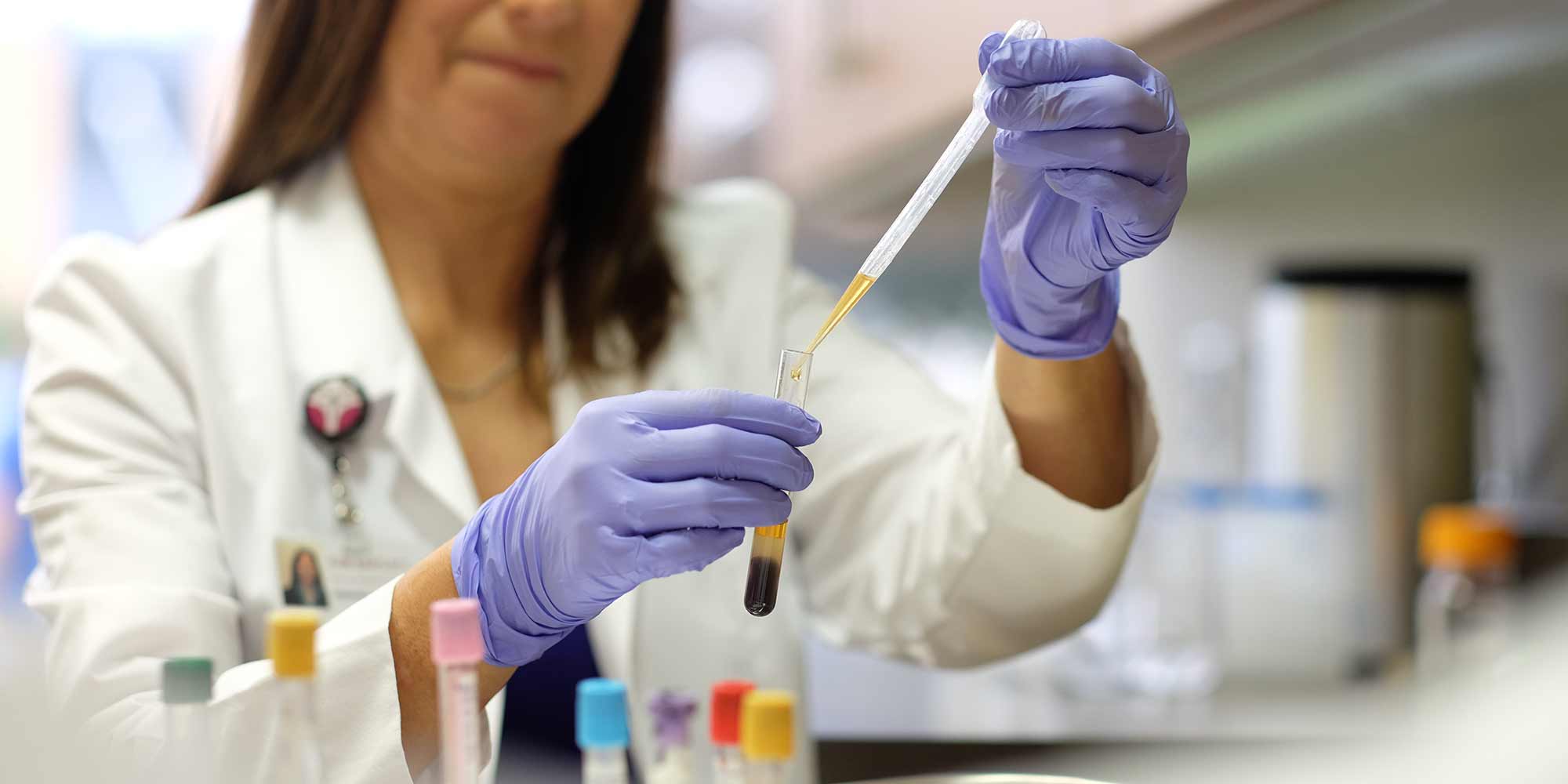Clinical Trials

Information for Study Participants
For inquiries regarding participation in a clinical trial, please contact the Trinity Health Office of Research & Innovation – West Michigan at 616-685-2400.
The Clinical Trials Unit in Grand Rapids is located at: 
310 Lafayette Ave, Ste 215
Grand Rapids, MI 49503
Phone Number: 616-685-2400
Please note: We do not conduct healthy patient clinical trials.
Frequently Asked Questions
What is a clinical trial?
A clinical trial is a research study that involves human participants to evaluate new approaches to the prevention, diagnosis and treatment of a disease. These new approaches can include new therapies, medicines or devices. Clinical trials help doctors find out if these new approaches are safe and if they are better than treatments already being used.
One way of classifying clinical trials is by their purpose:
- Prevention trials – looks for ways to prevent diseases using medicine, vitamins, vaccines, minerals or lifestyle changes
- Screening trials – tests the best way to detect certain diseases or health conditions
- Diagnostic trials – conducted to find a better way to diagnose a particular disease or condition
- Treatment trials – tests new treatments, new combination of treatments or new approaches to surgeries or therapy
- Quality-of-life trials – tries to find ways to improve the life for people living with diseases or health conditions
Some clinical trial terminology you might come across:
- Prospective – a study that follows a group of participants over time
- Randomized – when participants are grouped by chance (usually by a computer program) and are split into a treatment group and a placebo group and the odds of selection are similar to a flip of a coin
- Placebo group (Control group) – a group of participants that receive current standard treatment or no treatment at all
- Cross-Over – when participants receive both treatment and placebo over time
- Double-blinded – when neither the participant nor the researcher know if the participant is receiving treatment or placebo
- Open label studies – when both the participant and the researcher know the participant is receiving treatment and not placebo
What are the phases of clinical trials?
Most clinical research involves testing in a series of steps, called phases. The different phases are:
- Phase I trials – These are the first studies in people, usually in a small group (20-80), and it is in this phase that they evaluate how the drug should be given, how often and what dose.
- Phase II trials – The second phase continues to test the safety of the drug and begins to evaluate how well the drug is working, but now in a larger group (100-300).
- Phase III trials – This phase is to test the new drug or treatment in comparison to current standards. A participant will be assigned to the standard group or the new group through a process called randomization. Phase III trials often include large numbers of people (1,000-3,000) and usually at multiple locations.
- Phase IV trials – This phase is post marketing, usually after a drug is FDA approved and is already being used by consumers. Side effects, risks and benefits over a longer period of time, are evaluated in a larger group of people.
Who is eligible to participate in clinical trials?
Each study has its own guideline of who can participate. These guidelines are made up of factors called inclusion and exclusion criteria and these vary based on the study protocol; a study protocol outlines how the clinical research trial will be conducted.
The inclusion criteria are the factors that allow someone to be involved in a clinical trial and the exclusion criteria are the factors that prevent someone from being included. Eligibility guidelines can include age, gender, type and stage of disease, previous treatment history and other medical conditions.
Being specific and selective about who participates in a clinical trial helps produce more reliable results. Before you can be included in a clinical trial you have to qualify for the study.
What are biorepositories and why are they important?
Biorepositories are "libraries" in which bio specimens are stored for future use in research. These repositories also collect information regarding the patient who provided the specimen. They are critical to enabling modern molecular-based research that will help drive the development of new diagnostics and therapies.
What are bio specimens?
Bio specimens are biological materials from people (such as tissue, blood, plasma, and urine) that can be used for diagnosis and basic research. When patients undergo procedures such as a blood draw, biopsy or surgery in which a specimen is removed for diagnostic or therapeutic purposes, it is often possible for a small amount of residual specimen to be stored and later used for research. Many patients have given consent for their bio specimens to be used in research, in the hope that the resulting knowledge might help other patients in future years.
What is an informed consent?
Before someone can enter a clinical trial, they must sign an informed consent document. This document provides detailed information about the study and will discuss the risks and benefits to the participant. The information in the document will be explained to the participant by the research team. If you decide to participate in the trial, you will need to sign the informed consent document and you will receive a signed copy. It is NOT a contract and you are allowed to leave the study at any time.
What is an Institutional Review Board (IRB)?
Each hospital or research center has an IRB which is an FDA-mandated committee consisting of health care professionals, scientists and non-medical people from the local community who review all clinical research trials to ensure the participant safety is protected, personal rights are respected and that all participants are fully informed about the trial. The IRB must approve all clinical trials before they can start.
General Information about being a Participant
Participation in a clinical trial is completely voluntary and you are allowed to leave a study at any time. Leaving the clinical trial early will not compromise or affect future medical care. Participants that need to withdraw should notify the research team and provide a reason for leaving.
Participating in a clinical trial should not replace the care you receive from a primary physician. The members of a research team serve as an additional support for your current treatment and do not replace the primary physician.
How do I find clinical trials?
For inquiries regarding participation in a clinical trial, please contact the Office of Research & Innovation at 616-685-2400.



